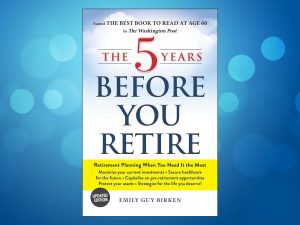How to get the most from your travel experience
By Dr. Michael Gordon
 I remember a time when travel involved fewer risks, more glamour and fewer crowds. So, in today’s hectic world, how can we plan enjoyable trips that are safe and comfortable?
I remember a time when travel involved fewer risks, more glamour and fewer crowds. So, in today’s hectic world, how can we plan enjoyable trips that are safe and comfortable?
Many of us want to travel to see friends and family or to explore new locations for as long as we can. After all, a good holiday can provide a fascinating and exciting break from everyday life.
Think ahead
For older adults, the most basic, prudent principles that should govern plans are as follows:
1. Know your medical conditions and limitations.
2. Be sure you know which medications you are taking.
3. Think about what you will do if something untoward happens while you are away.
Check your medical insurance or purchase a new policy that will cover you in all eventualities. Study your policy ahead of time to avoid unexpected bills and nasty surprises. Find out if your coverage includes bringing you home in a medical emergency, and also if flights, accommodation and meals will be covered for family members who need to remain with you or come to the rescue. Also, does your policy cover people of your age and with pre-existing conditions? Better to ask now and be safe, rather than sorry.
Choose your destination wisely
How fit are you and your companions? Are you able to handle an adventurous holiday where the activities and weather conditions might be tougher than you expected? Consider accessibility and the distances you’ll have to walk each day, and the likely ruggedness of the territory that will be traversed.
At any age, it is wise to go over the health risks associated with your chosen destination. Will you need to be immunized or take  precautions against illnesses such as malaria and typhoid? Might you get seasick on a cruise or claustrophobic in an inside cabin? Are you likely to struggle with altitude sickness or heat stroke during a trip to Machu Picchu? Is Zika virus a threat in Brazil, or could Dengue fever have the potential to ruin your safari?
precautions against illnesses such as malaria and typhoid? Might you get seasick on a cruise or claustrophobic in an inside cabin? Are you likely to struggle with altitude sickness or heat stroke during a trip to Machu Picchu? Is Zika virus a threat in Brazil, or could Dengue fever have the potential to ruin your safari?
Simply put, some destinations have more interest but pose more risk than others. Do your homework, and visit a travel doctor six to eight weeks before you leave.
Follow some simple rules
Make sure you label and carry all of your medications in your hand luggage, with a back-up supply in your checked luggage. Take a summary letter from your doctor outlining your medical conditions, prescribed treatments and medications. Wear a medic-alert bracelet if necessary, and carry clear instructions at all times as to who should be contacted in case of an emergency.
The good news
If you are realistic about your day-to-day needs and abilities, ask lots of questions, get good medical advice and take the necessary precautions, is possible to travel well and happily, even until your later years. Bon voyage!
Dr. Michael Gordon is a geriatric medicine consultant to Palliative Care at Baycrest Geriatric Health Care System.













